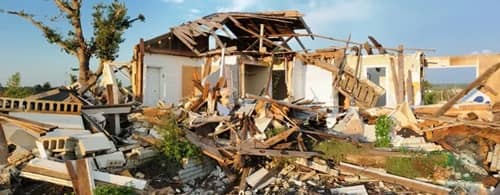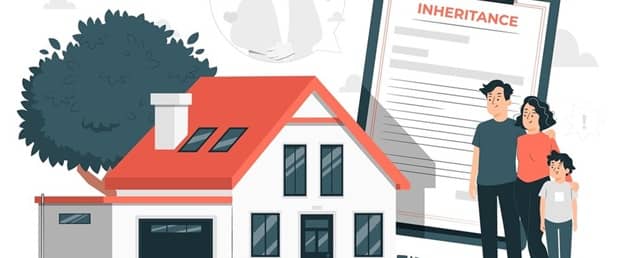Homeowners insurance saves you from losing money because of events that you didn’t expect. This is something that a lot of people don’t know. There are different kinds of security that insurance companies offer. Some events are covered, but others need extra insurance. Knowing what your policy is can help you avoid shocks when you file a claim. People who have insurance should look it over often. They should make sure it meets their wants. The right insurance helps people get back on their feet quickly after a disaster.
Understanding Homeowners Insurance Coverage
Homeowners insurance protects your house and your things financially. It covers loss from many different things. The amount of security varies between plans. Some only cover basic losses, while others cover a lot more. People who have rules should read them carefully. They need to know which events are included and which are not.
When insurance companies talk about coverage, they use specific words. Agents should be asked to explain things to homeowners. There may also be benefit limits and fees in some policies. Some insurance companies let you make changes by adding extra policies. Policyholders should make sure that their coverage fits their needs.
Homeowners Insurance Typically Covers Disasters
Natural Disasters Covered By Homeowners Insurance

Most basic plans cover damage from fire and smoke. It also covers windstorms, like hurricanes and tornadoes. Damage from hail is another usual one. Coverage includes lightning hits that start fires or damage electrical equipment. Homeowners need to check to see if their area is exempt. There may need to be extra coverage in some high-risk places. When it comes to certain tragedies, insurance companies may have certain rules. Before a tragedy happens, homeowners should make sure they are covered.
Water-related Disasters Covered By Homeowners Insurance
Water damage that happens quickly and by chance is usually covered. This protects against things like broken pipes and device leaks. Damage from rain is covered unless floods cause it. Homeowners should keep up with upkeep to keep their claims from being denied. Water damage caused by carelessness is often not covered.
Before paying out on claims, insurance companies look into what caused the damage. For full safety, you may need to add more recommendations. People who own policies should look for specific restrictions.
Other Covered Events By Homeowners Insurance
Most basic plans cover theft and damage to property. Explosions, whether they happen by mistake or are caused by outside forces, are also included. Damage from things like trees or garbage falling on your home is covered. Damages caused by riots and other social unrest are often paid. When someone claims theft, their insurance company may want to see a police record. Homeowners should take pictures and videos of damage to prove it. The claims process goes faster when you have the right paperwork.
Disasters Not Typically Covered By Standard Policies
There are some things that homeowner’s insurance does not cover. For some events, you need different rules or more support. Most of the time, flood damage is not covered. Water damage from rivers that most plans do not cover overflow, heavy rain, or storm waves. People who live in places that are prone to flooding need separate flood insurance.
It also doesn’t cover earthquakes and floods. Moving ground can do a lot of damage to houses. Homeowners need to protect themselves by getting earthquake insurance. Some plans let you choose whether to cover small earth changes or not. Usually, you need different approvals for landslides, sinkholes, and mudslides.
Back-ups in sewers can do a lot of damage. Most insurance plans don’t cover this kind of water harm. For extra safety, homeowners can add water flood security. Another common reason is mold outbreaks. If mold grows because of bad upkeep, insurance companies won’t pay claims. You may only get paid for mold that was caused by an event that is covered.
Normal plans don’t cover damage from pests. Problems with termites, mice, and other pests are called care issues. Homeowners need to be proactive to avoid having to pay for expensive fixes. War and deadly dangers are also left out. Damages brought on by war, government acts, or nuclear events are not covered by insurance.
How To Ensure Comprehensive Protection
For extra safety, homeowners should think about adding recommendations. In some places, you need protection against floods and earthquakes. Regularly reviewing covering makes sure that you have enough safety. Policyholders should look at the risks in their homes. Working with an insurance representative can assist you in finding plans that fit your needs.
Homeowners should keep track of when their policies are changed. With the right coverage, you won’t have to worry about money after a disaster.
Tips For Filing A Claim After A Disaster
- Take clear pictures and movies of the damage right away, before you make any partial fixes, to keep a record of it.
- Tell your insurance company right away so that the claims process can begin without any delays.
- For compensation reasons, keep all records for fixes, temporary housing, and other costs that are connected.
- Don’t make any lasting fixes until an insurance agent looks at the damage and says that the repairs are covered.
- Give correct details about how bad the damage is to keep your claim from being denied or held up.
- If you want to file a claim, make sure you understand your policy’s coverage limits, fees, and what it doesn’t cover before you do so.
- Keep a thorough list of the broken items you own, including what they are, when you bought them, and how much you think they are worth.
- Keep in touch with your insurance company on a daily basis to see how your claim is going and make sure it gets resolved quickly.
- If you want to avoid problems with repayment or coverage disagreements, only hire workers that your insurance company recommends.
- Keep copies of all emails, phone calls, and papers connected to your claim that you send or receive with your insurance company.
Conclusion
Homeowners insurance protects you financially against many types of tragedies. Knowing which events are covered and which are not helps homes get ready. Regularly reviewing policies makes sure that you have enough security. For full safety, you may need to add more recommendations. The process goes faster if claims are filed quickly and with the right paperwork. People who own homes should get help from insurance agents. Having the right insurance helps in an emergency.

